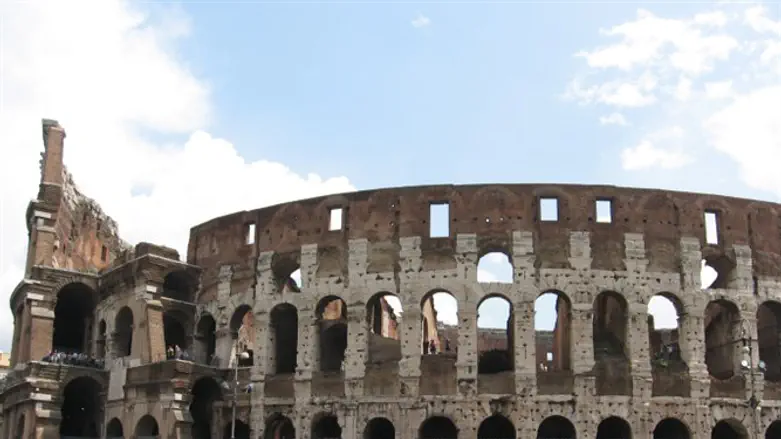
Hundreds of participants in a road race through downtown Rome commemorated the Holocaust while looking to the future.
Dubbed the “Run for Mem,” Sunday’s race was among an array of events on and around International Holocaust Remembrance Day, Jan. 27, the anniversary of the 1945 liberation of the Auschwitz-Birkenau Nazi death camp.
The noncompetitive race was organized by the Union of Italian Jewish Communities, or UCEI, the Rome Marathon, and the Maccabi Italia Association under the auspices of the government and with the backing of civic, Jewish, sports and other groups.
Organizers said the race had approximately 1,500 runners, from young people to grandparents. Many cheered them on from the sidelines.
“There was no winner,” a UCEI spokesperson said. “They all arrived back together.”
The runners wore white T-shirts emblazoned with the race’s slogan, “Race for Remembrance, Looking Ahead.”
The race followed two itineraries starting and ending near the main synagogue in Rome’s old Jewish ghetto and taking runners past sites related to the World War II persecution or deportation of Jews. Among those on hand was Shaul Ladany, an Israeli racewalker who survived the Holocaust and the massacre of Israelis at the Munich Olympics in 1972.
“Today we are here for something important: To defend memory, and to make it a value that is ever more alive,” Ladany told the media.
Organizers said the Run for Mem was the first time in Europe that a sporting event like this had been used to commemorate the Shoah.
UCEI President Noemi Di Segni said they had chosen this “new, perhaps courageous, way to mark Holocaust Remembrance Day” to “unleash the energy of running together” as a means of reaffirming life.
“People run every day, but today we have to carry with us the milestones of our past and remember that the journey ahead of us starts from the one which was created by the events of the past,” she said. “Sometimes people fall and are hurt. They have made us fall, they have hurt us, but we have gotten back to our feet and we have started again. We have started to live again, as individuals, as a people, as a community, as Italian citizens, as Europeans.”